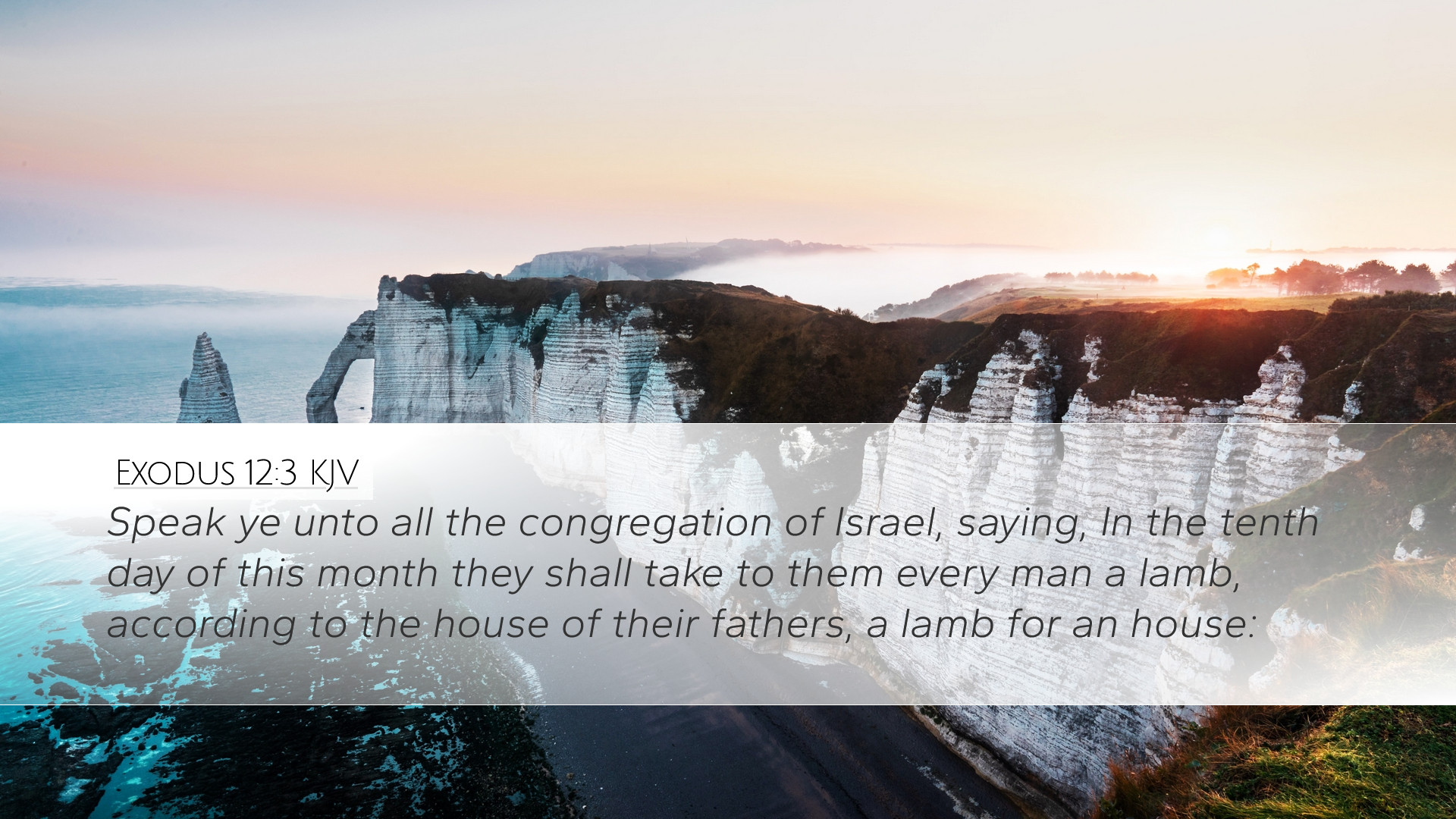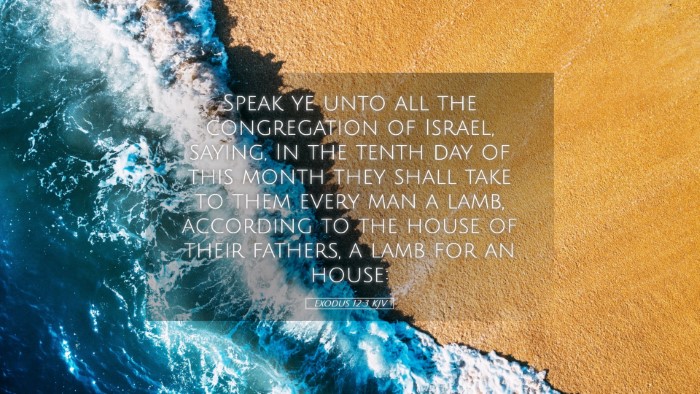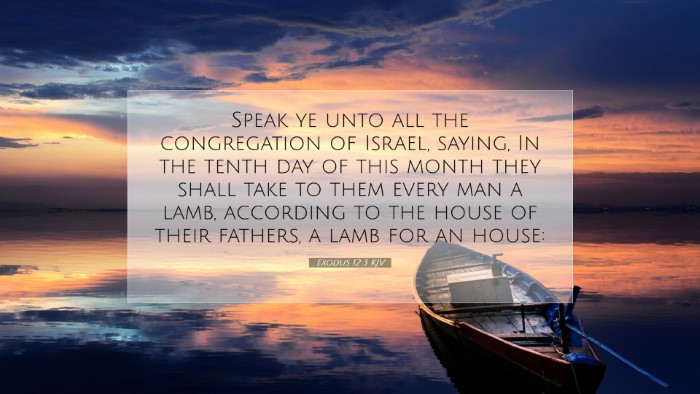Commentary on Exodus 12:3
Bible Verse: "Tell all the congregation of Israel that on the tenth day of this month every man shall take a lamb according to their fathers’ houses, a lamb for a household."
Introduction
The passage in Exodus 12:3 serves as a pivotal instruction preceding the Exodus event that culminates in Israel's liberation from Egypt. This verse provides the divine command for selecting the Paschal lamb, which later becomes a significant symbol in Jewish tradition and Christian theology. The instruction embodies themes of redemption, sacrifice, and communal identity crucial for understanding both the Old and New Testaments.
Historical Context
Israel, having endured slavery in Egypt for over four centuries, was to experience divine intervention. This moment in Exodus reflects God's covenant relationship with His people and lays the groundwork for the Passover, which is central to Jewish worship and remembrance. The selection of the lamb, as stated in this passage, marks the beginning of their deliverance and signifies a new identity for Israel as God's chosen people.
Analysis of Key Elements
-
Congregation of Israel
Matthew Henry highlights that the term "congregation" points to the collective identity of Israel. It reflects the necessity of communal participation in religious rites, illustrating that salvation is not solely individual but communal, binding the people together in obedience to God’s directive.
-
The Tenth Day of the Month
God’s timing is significant. Albert Barnes notes the precision of divine instruction, which emphasizes the orderly nature of God’s plans and His foreknowledge. This specific timing prepares the people for the dramatic events that would unfold, illustrating that God is in control of history, setting the stage for both judgment and redemption.
-
The Lamb
The lamb's selection is laden with theological implications. According to Adam Clarke, the lamb represents innocence and purity. It embodies the idea of substitutionary atonement, where the lamb would bear the consequences that the sinners (Israelites) deserved. This initial instance foreshadows the ultimate sacrificial Lamb in Christ, whose death would provide atonement for humanity's sins.
-
Household Representation
Each household taking a lamb signifies God's personal attention to families, as Matthew Henry remarks on the importance of familial faith. It reflects that faith and obedience must be both personal and communal—each home partaking in the salvific act of the Passover, thus integrating individual and collective responsibility in the worship of God.
Theological Implications
This verse lays the foundational understanding of sacrifice in the Old Testament, which is paramount for interpreting the New Testament. The theme of blood as a means of deliverance reflects throughout Scripture. Albert Barnes suggests that God’s instruction to apply the blood on the doorposts is a precursor to the protective grace offered by Christ's sacrifice—demonstrating that obedience rooted in faith leads to salvation.
Practical Applications
For pastors, students, and theologians, the implications of Exodus 12:3 encourage reflective engagement with God’s commands and the intention behind them. The meticulousness of God’s guidance serves as a reminder for believers today to adhere to biblical principles with seriousness and diligence.
-
Significance of Obedience: The call to gather as a congregation and obey God's instruction underlines that obedience may lead to communal blessing.
-
The Call to Sacrifice: Reflecting on the lamb’s symbolism can inspire self-examination about personal sacrifices made in service and devotion to God and others.
-
Emphasis on Community: Understanding the importance of family and household faith can reinforce the role of believers in fostering spiritual environments within their homes.
Conclusion
Exodus 12:3 unveils profound theological and practical truth within the narrative of Israel's deliverance. It highlights God's meticulous provision for His people while foreshadowing the complete deliverance offered in Christ. As we reflect on this verse, we are reminded of our need for redemption and the faithfulness of God in fulfilling His promises. This study serves to unite historical context with spiritual application, encouraging the faithful to live out the principles derived from this foundational text.


